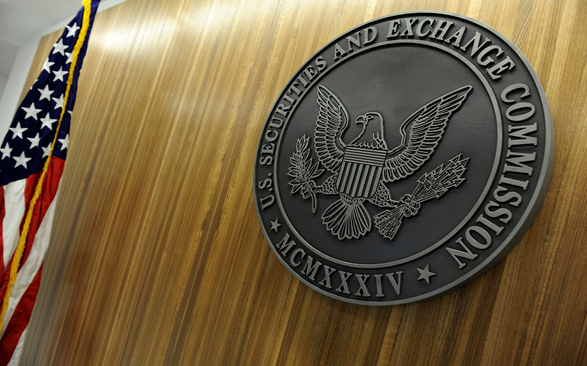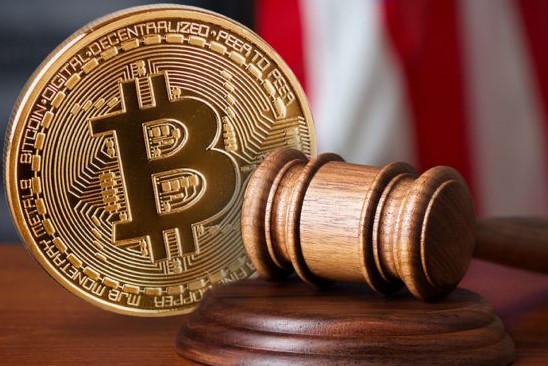By Jude Ayua
Immutable, an Ethereum Web3 gaming firm, recently received a Wells notice from the US Securities and Exchange Commission (SEC).
“We’re frustrated to share that the SEC recently sent us a Wells notice, which non-specifically alleges violations of securities law and alleged misrepresentations by the company… While not specified in the notice, we believe its claims are targeting the listing and private sales of IMX in 2021,” Immutable stated in its announcement early November.
Despite the SEC’s targeting of leading crypto and Web3 companies, Immutable became the first Web3 gaming company to have been issued a Wells notice. In the announcement, Immutable stated its commitment to “fight for [its] rights, and [for] those of our industry, vigorously” if necessary.
A Wells notice usually precedes the SEC’s consideration to bring a lawsuit against a recipient. Immutable noted that it was not anticipating the notice, as it came after only one engagement with the SEC to clarify the SEC’s claims against it.
“Prior to the issuance of a Wells notice, there are often multiple months of interviews and conversations between company counsel and the SEC… Instead, in our very first interaction with the SEC, we were told a Wells notice would be issued to the company within the week. We then received it within hours,” the company noted, while also denying the SEC’s claim that IMX is a security.
In a similar reaction, a former SEC regional director Marc Fagel said in a tweet: “It’s hard to believe the SEC would Wells without conducting sufficient investigation to support the claims; way too risky outside the TRO [Temporary restraining order] scenario.”
The SEC’s regulation-by-enforcement
The SEC has been criticized for its regulation-by-enforcement, which Immutable also emphasized in its statement. Other firms including Coinbase, Consensys, Ripple, OpenSea, and Crypto.com have faced the SEC’s allegations in the past four years.
In July 2023, Ripple won a significant victory against the SEC when Judge Torres ruled that XRP was not classified as a security. This decision marked a pivotal moment for cryptocurrency regulations, setting a legal precedent for how digital assets might be classified in the future. Notwithstanding, the suit is still ongoing after a series of appeals by both SEC and Ripple.
Meanwhile, after publicly declaring in 2018 that Ethereum (ETH) was not a security, the SEC quietly initiated an investigation into ETH. However, Consensys, a major Ethereum-focused firm, filed a lawsuit against the SEC to defend the broader Ethereum ecosystem in June 2024.
In another critical legal battle, Grayscale took action against the SEC, seeking to pave the way for institutional adoption of crypto. Grayscale won the case, with the court describing the SEC’s denial of Grayscale’s proposal as “arbitrary and capricious,” highlighting the SEC’s inconsistent approach to crypto regulation.
Recently, the SEC’s approach to crypto has extended further, impacting artists, musicians, and other creators. The SEC’s actions against NFT platform OpenSea have raised concerns about overreach, as the livelihoods and creative freedoms of many digital content creators now face new regulatory threats.
Read also: US SEC classifies crypto mining device as security.
Immutable’s response
In its response to the SEC’s Wells Notice, Immutable expressed confidence in its products and services. “Rest assured: it’s business as usual for Immutable and we’re going to continue doing what we do best – building products and services for games and players.” The company added, “We are confident in our position and welcome a robust conversation to clarify facts.”
The company expressed displeasure over the SEC’s regulation-by-enforcement approach: “The industry desperately wants clear guidelines for compliance, but instead startups are forced to spend millions of dollars in legal fees to even get off the ground.” It further stated the regulatory implication of the SEC’s approach:
“The regulatory void created by the SEC’s approach has left companies to speculate on what they have to do, and attempt to become compliant against a framework that is riven with ambiguity, uncertain in application, not fit for purpose and yet, aggressively enforced.”
To address the “regulatory void,” Immutable recommended the way forward for the SEC:
“Engage with the industry. Create clear and fit-for-purpose industry rules and regulatory guidelines, and we will follow them. Use fair process, and we will adhere to it. At the absolute minimum, have a real conversation before firing from the hip.”
In a recent development, Immutable has expanded its platform by integrating Telegram to enhance its gaming and community-building features. Through this integration, players will gain access to mini-games, secure transaction options, and improved community-building tools. Immutable also introduced several updates, providing developers with enhanced functionality for building games within the Telegram ecosystem. Among these updates, the company added pre-approved transactions to enable smoother interactions in in-game marketplaces. Additionally, the platform’s passport feature now includes an integration with Blockaid designed to strengthen transaction security.
Read also: eToro and US SEC settlement: Takeaways for digital assets operators.
About the Author: Jude Ayua is a policy analyst at CAB. A lawyer, Jude is an associate at Infusion Lawyers where he is a member of the Blockchain & Virtual Assets Group. He is also a member of the Policy & Regulations Committee of the Stakeholders in Blockchain Technology Association of Nigeria (SiBAN). Jude reports and writes on crypto policy and regulations. jude@infusionlawyers.com
Discover more from Crypto Asset Buyer
Subscribe to get the latest posts sent to your email.





